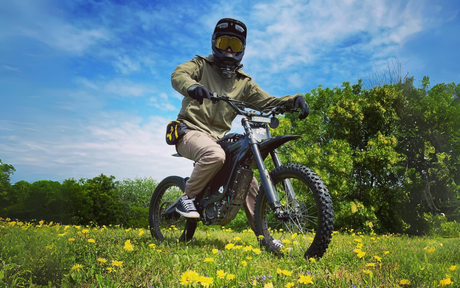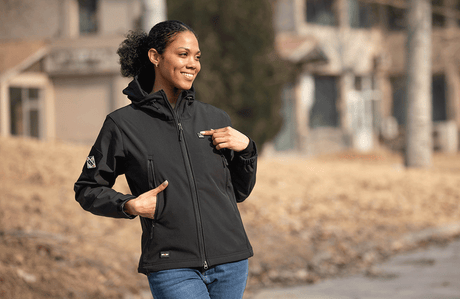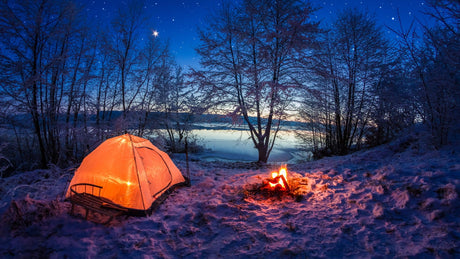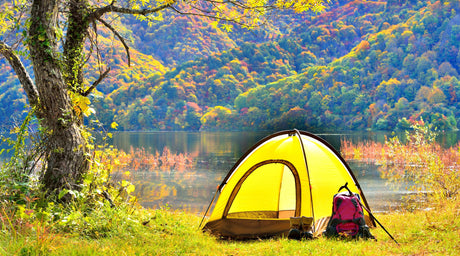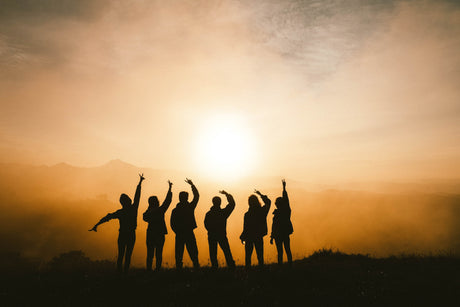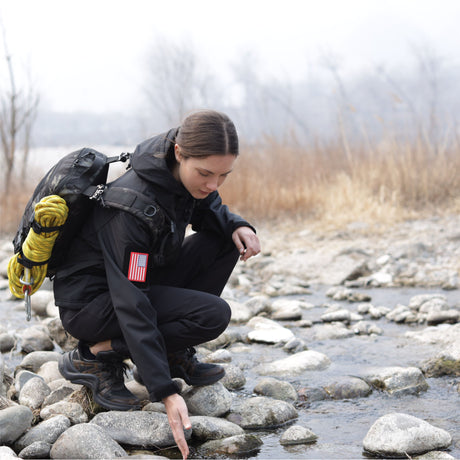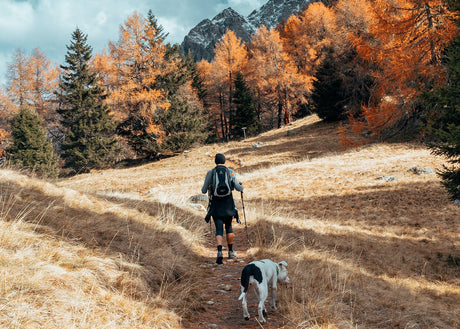Remember the 4 essential packing principles for your hiking safety.
Protection when hiking covers how you keep yourself cool and in the shade when it’s hot as well as warm and toasty when it’s cold. Think of this as split between night and day.
Day: pack for sun protection. This includes sunglasses, sunscreen and a hat. Simple!
Night: pack to keep warm. This includes what you wear (adequate insulation) and what surrounds you (shelter). If it is just a day hike, an emergency blanket will provide shelter if you get lost, while being light as a feather in your pack as a substitute to bringing a whole tent. If you are on a day hike, even if it is during the warmer months, pack a Dewbu heated jacket to keep you warm at night.
Finally, what is one of the best ways to stay warm? Fire. Wrap a lighter up in plastic so that it is waterproof and carry that in your pack. Even better, a flint stick firestarter is resistant to moisture and can be included in a lightweight survival kit.
- Navigation (maps, illumination)
A clear reason why day hikers are so much more inclined to require emergency services? Overconfidence in their ability to navigate. Anybody can get lost on a trail, simply through a lack of attention and straying from the trail.
Never rely solely on your mobile phone for navigation. Print off a map of where you are headed and wrap it up in a plastic bag to keep it waterproof. Bring a lightweight compass to at the very least send you in the right direction if you know where you are supposed to be headed, and at the best help you navigate exactly where you are on the map so that you are no longer lost.
With a compass, you are much less likely to require any of the other essentials because it will save you from getting lost. In other words, a compass is your most important safety accessory when hiking. For this reason, it is a good idea to be confident without a phone (i.e. know the basics of navigating without technology).
It’s a lot harder to navigate if you can’t see. When you are lost off the trail, you are more than likely going to have to spend the night in the wild. You can survive perfectly well without food, but a torch will help you navigate your terrain much more easily, especially if you are in a desert environment and it is safer to walk when it is cool at night.
Of course, what will beat all of your accessories is an Emergency Locator Beacon. Knowing that day hikers are at risk through a lack of preparation and posessions when hiking, an ELB can be a vital and small piece of equipment that will help rescuers locate your position using GPS. However, remember that these are for emergency use only, so only use if you have exhausted all options of finding the trail again.
- Treatment (first aid, repair kits, tools)
A small first aid kit will help with minor injuries and abrasions.
Walking poles aren’t just great for your joints. When Neil Parker fell six metres down a waterfall and broke his leg, he used his walking poles as splints to stabilise the injury.
A repair kit for your gear, such as a small knife, scissors and duct tape can come in handy when in an emergency.
- Sustenance (food and water)
Even if it is just a day hike, pack some extra dry foods. Just imagine that you might get stuck out there in the wild for two days. You might enjoy some filling staples such as nuts and granola bars.
You can survive a long time without food, but you won’t survive long without water. Never go on a day hike without water, but beyond this, pack water purification tablets that you can potentially use if you run out of your own water and find a natural source.
5. How to improve your chances of being rescued
The old adage of cool heads prevailing rings true when hiking, especially if you are hiking alone. Panic can turn an unfortunate situation into a dire one very quickly, as it impairs your ability to make clear and smart decisions. Remember the following to improve your chances of being found when lost.




